Archives - Page 2
-
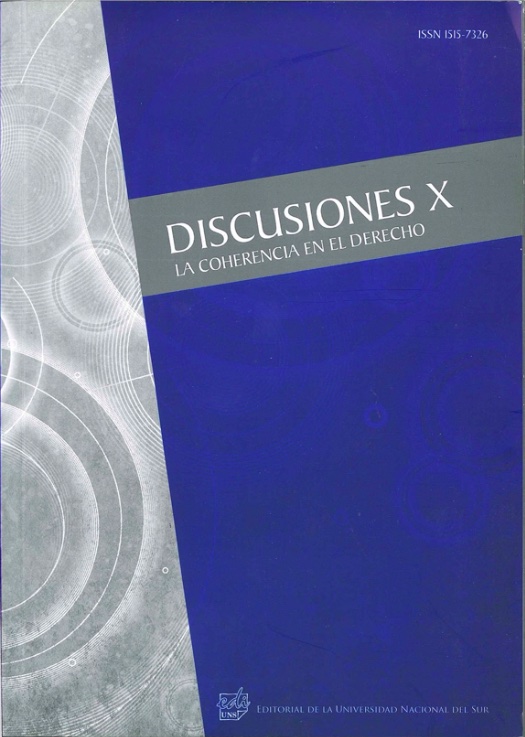
Coherence in Law
Vol. 10 (2011)In this issue, the article under discussion is by Amalia Amaya: "10 theses about coherence in law". The author presents, in a succinct manner, some ideas about coherence, in the form of 10 theses. The concept of coherence in law can be understood in terms of constraint satisfaction; 2. Coherentist inference is an explanatory type of inference; 3. Coherence is constructed through operations of contraction, addition and reinterpretation; 4. There are three types of reasons in favor of coherence: epistemic, practical, and constitutive; 8. The primary motivation for coherentist theories is the articulation of a non-skeptical alternative to formalism; 9. Coherentism is a psychologically plausible theory and this is a good reason in favor of it; 10.Coherentism places the agent at the center of a theory of justification.
-
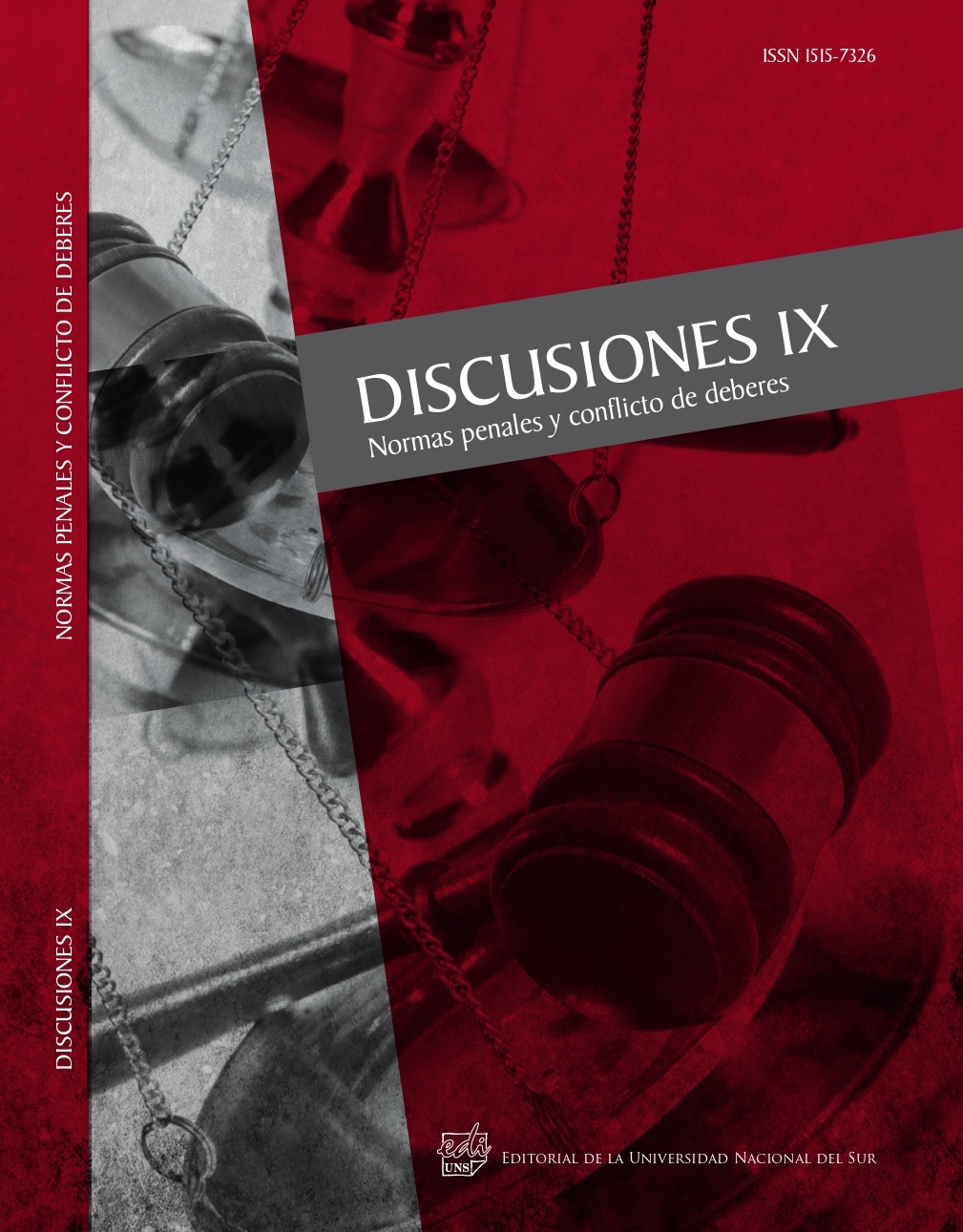
Criminal Law and Conflict of Duties
Vol. 9 (2010)The text by Juan Pablo Alonso discussed in this issue has as a departing point the problem generated by the existence of multiple criminal norms applicable to the same case, in a context in which the duties and competencies of citizens are not necessarily correlated with those of judges. In his work "Criminal Law Norma and Conflict of Duties" Alonso analyzes the conflict that could occur between two articles of the Argentine Penal Code: 302 section 1 (release of checks without provision of funds) and 176 section 3 (fraudulent bankruptcy). The problem is the following: in Argentina, if one and the same agent has written a check without provision of funds and in turn is under a bankruptcy process, a regulatory dilemma arises. Either he pays the check and is exonerated from criminal responsibility for writing unfunded checks, but he incurs the crime of fraudulent bankruptcy; or he does not pay the check, he incurs in the crime of issuing checks without provision of funds, although he respects the duty not to pay outside the bankruptcy process. Stated head-on: paying or not paying, you will receive a criminal sanction.
-
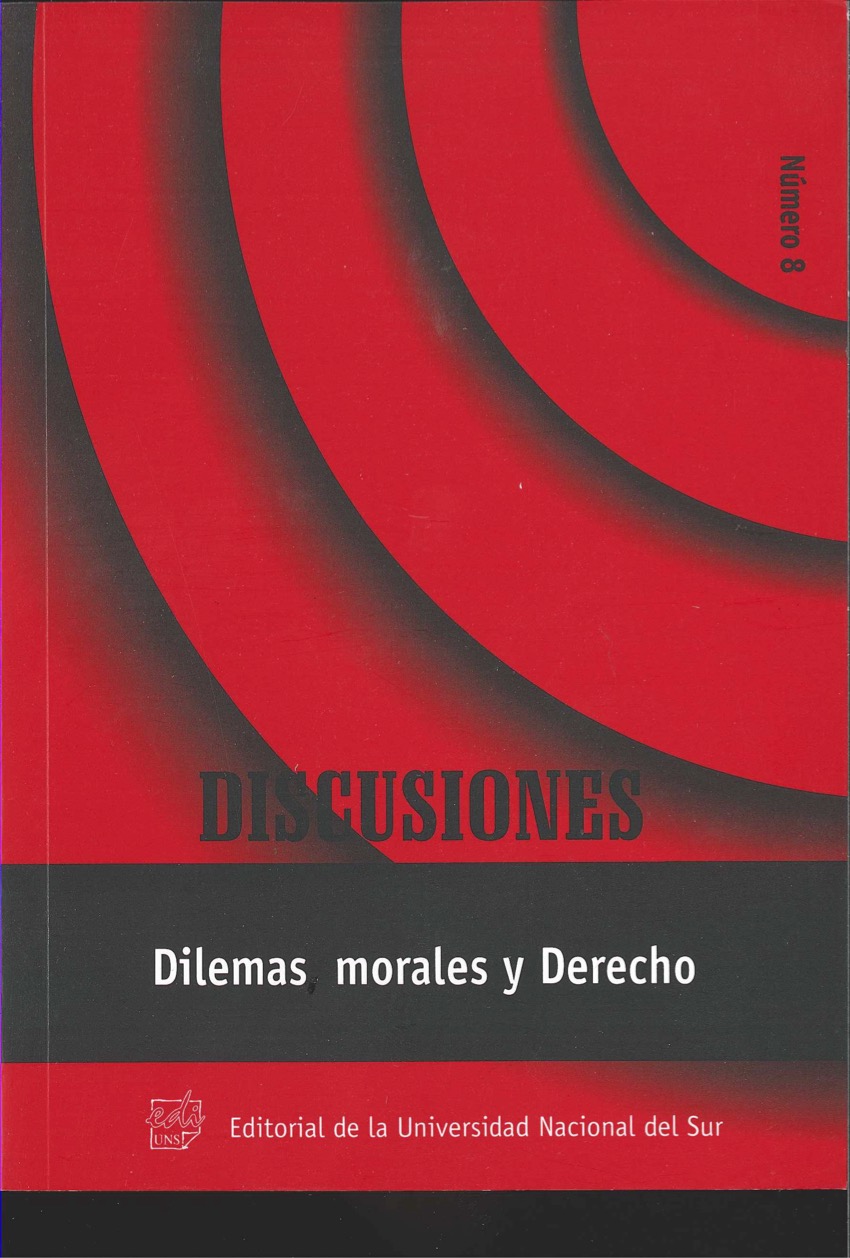
Moral Dilemmas and Law
Vol. 8 (2008)This issue of Discussions features a text by David Martínez Zorrilla on moral dilemmas and the Law in which the author approaches the puzzle of moral dilemmas from the perspective of normative systems. The work is commented with insight and depth, by authors such as Manuel Atienza, Guillermo Lariguet, Daniel Mendonca, and Eduardo Rivera López.
-
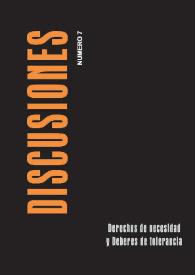
Compelling necessity and duties of tolerance
Vol. 7 (2007)Two problems have served as the axis for the analysis of rights in this last century. In the first place, a greater concern for the precision of the meaning of that term and its connections with other expressions of our conceptual networks, e.g. duties, responsibility, etc. Second, a deep debate about the foundation of rights. This issue of DISCUSSIONS, dedicated to the problem of the foundation of compelling necessity and the duties of tolerance, is a paradigmatic example of these characteristics of the contemporary debate.
-
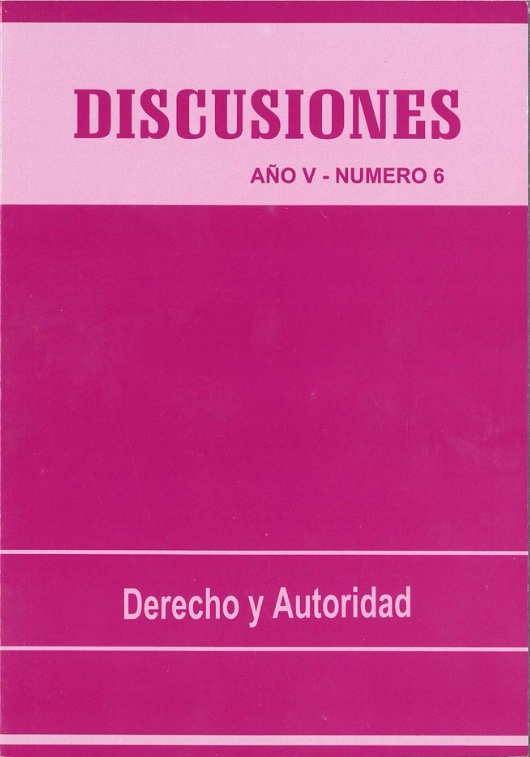
Law and Authority
Vol. 6 (2006)Starting from Rosenkrantz's main article the volume addresses the complex question in practical philosophy concerning the relationship between law and authority. To assert the existence of law implies to assert its binding force, at least pro-tanto. Furthermore, under certain assumptions identified in the paper, the law could be binding even for persons which are victims of some economic and social injustice. Rosenkrantz's enterprise is philosophical as well as normative. He advances a concept of law which implies the idea of authority, in the sense of something capable to give at least pro tanto reasons for action.
-

Reasons and Norms
Vol. 5 (2005)Starting from Redondo´'s main article the volume addresses the complex question in practical philosophy concerning the relation between reasons and norms. One of the key points is to clarify if, and in which way, general norms can deliver reasons for action. Under the assumption that general norms are intended to motivate their addressees, they are ideal candidates to be taken as reasons for action. Notwithstanding, this simple and direct connexion gives rise to multiple questions and problems which have stimulated deep controversies in moral and legal philosophy.
-
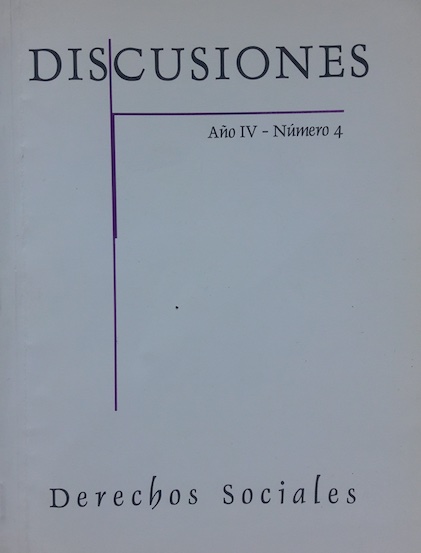
Social Rights
Vol. 4 (2004)In the main article of this issue, introduced by Claudio Michelon, Jr., Fernando Atria argues that the concrete implementation of some of the most important ideals of a progressive agenda, especially equality in the distribution of certain types of goods, cannot occur through the effective justiciability of social rights. This central thesis and others on which it is based are commented upon and discussed by Carlos Bernal Pulido, Juan Antonio Cruz Parcero, and Roberto Gargarella.
-
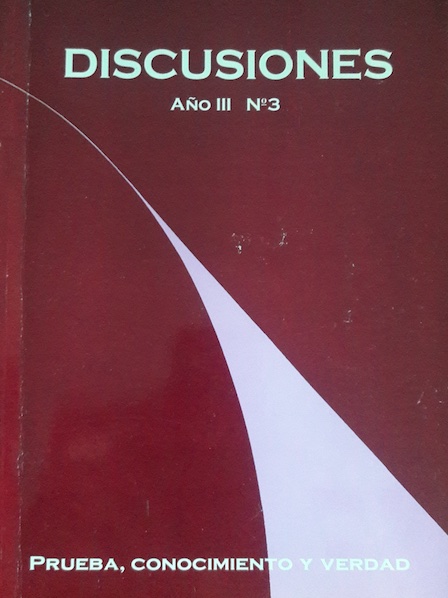
Evidence, Knowledge and Truth
Vol. 3 (2003)Probably, one of the factors that stimulated the theorization on the way facts are proved in the legal context has been the influence of the work of Michele Taruffo, professor at the University of Pavia. This issue of Discusiones also revolves around a work by this author, "Algunas consideraciones sobre la relación entre prueba y verdad", where he presents his main opinions on the relationship between the concept of proof and truth. In turn, this article is commented on, developed and nuanced by Marina Gascón, Perfecto Andrés Ibáñez, and Andrés Bouzat and Alejandro Cantaro. Taruffo then writes a reply.
-
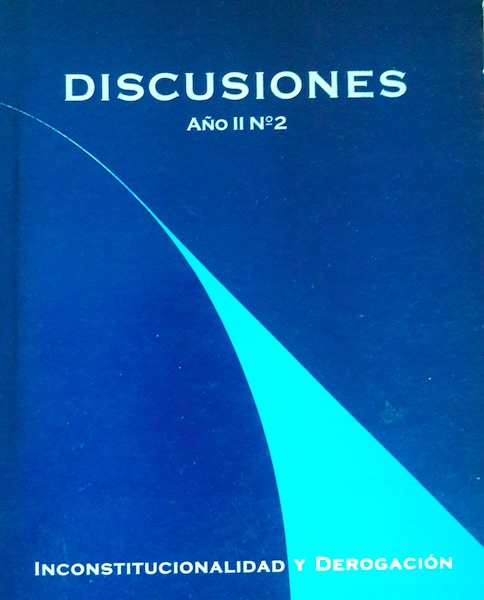
Unconstitutionality and Derogation
Vol. 2 (2001)The essays included in this volume examine the act of declaration of unconstitutionality and its relationship with the act of repeal of norms. Based on an initial evaluation proposed by Rodríguez, Orunesu, and Sucar regarding both acts, the discussion is expanded and nuanced through contributions from Schmill, Guastini, Ezquiaga, and Perot. Beyond the specific coincidences and discrepancies, all the works share the common aim of providing a theoretically adequate conceptual reconstruction of legal operators' intuitions and fruitful in their daily practice.
-
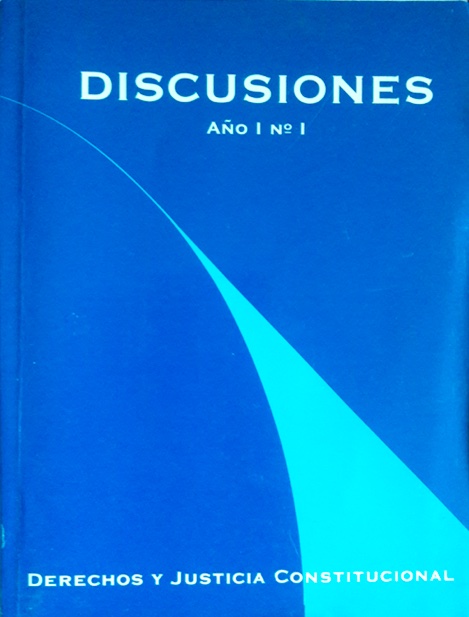
Rights and Constitutional Justice
Vol. 1 (2000)Contemporary moral philosophy provides important insights into the debate about the role of individual rights. The core of these individual rights has been called "coto vedado" to highlight their independence from political arguments. Some of the central concerns of the theories that attribute moral rights to individuals are the following: what consequences are derived from this attribution of rights for a community's institutional design? In what way may this core of individual rights be legally protected?; Is it convenient to introduce the rights collected in the "coto vedado" into principles of constitutional hierarchy? This volume offers an analysis of these problems.

